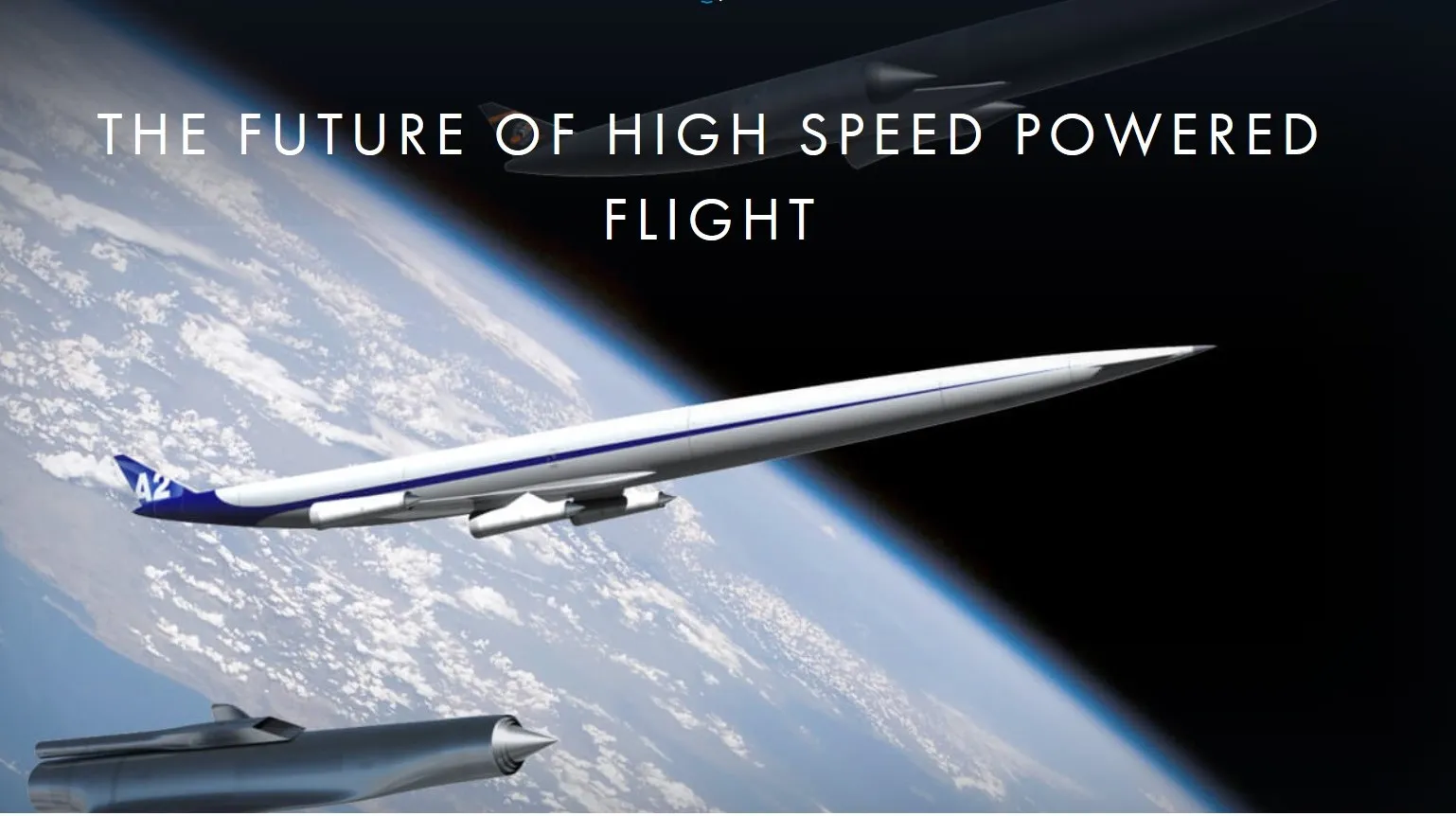
Boeing provides lift for UK hypersonic engine
Apr 12, 2018

Boeing has announced its support for the UK's hypersonic engine development, collaborating with the UK Ministry of Defence and industry partners to advance cutting-edge aerospace technologies. This initiative aims to enhance the UK's capabilities in hypersonic flight, which involves speeds exceeding five times the speed of sound. By leveraging its expertise in engineering and manufacturing, Boeing seeks to contribute to the development of advanced propulsion systems that could revolutionize military and civilian air travel. The project is expected to bolster national security and foster innovation within the aerospace sector, positioning the UK as a leader in hypersonic research and development.
Boeing's commitment to advancing aerospace technology has taken a significant leap forward with its recent involvement in the UK hypersonic engine project. This initiative is poised to revolutionize air travel and military operations, showcasing Boeing's role as a key player in the development of next-generation propulsion systems. Hypersonic technology, which refers to speeds exceeding Mach 5, promises to transform how we perceive distance and time in air travel. Below, we delve deeper into the implications of this project and its potential impact on the aerospace industry.
Understanding Hypersonic Technology
Hypersonic technology embodies the future of flight, enabling speeds that significantly reduce travel time across vast distances. For instance, a flight from London to New York could be completed in under an hour, a stark contrast to the current time of around 7-8 hours. The key to achieving such speeds lies in advanced engine designs that can withstand extreme temperatures and pressures. Boeing's involvement in the UK hypersonic engine project showcases its expertise in developing these high-performance systems.
The Role of Boeing in the UK Hypersonic Engine Project
Boeing’s participation in the UK hypersonic engine project highlights its commitment to innovation. The company is leveraging its extensive experience in aerospace engineering to support the development of hypersonic propulsion systems. This collaborative effort involves government agencies, universities, and research institutions, working together to create an engine that can operate efficiently at hypersonic speeds.
One of the critical aspects of Boeing's contribution is its focus on "sustainability". As the world increasingly prioritizes environmentally friendly technologies, Boeing is integrating eco-friendly materials and processes into the design of hypersonic engines. This initiative aligns with the company's broader goals of reducing the carbon footprint of aviation.
Chart: Key Features of Hypersonic Engines
| Feature | Description |
|---|---|
| Speed Capability | Exceeds Mach 5 |
| Efficiency | Reduces travel time significantly |
| Temperature Resistance | Designed to withstand extreme heat generated at high speeds |
| Fuel Types | Utilizes advanced fuels for improved performance |
| Environmental Impact | Focus on sustainable materials and processes |
The Strategic Importance of Hypersonic Technology
The strategic implications of hypersonic technology extend beyond commercial aviation. For military applications, hypersonic weapons systems offer unprecedented speed and precision, transforming defense strategies around the globe. Countries are racing to develop hypersonic capabilities, and Boeing’s involvement in the UK project places it at the forefront of this technological arms race.
Moreover, hypersonic technology can enhance national security by providing rapid response capabilities in emergency situations. This adaptability is crucial in an era where threats can emerge suddenly and require swift action. As Boeing collaborates with the UK government and defense contractors, it is positioning itself as a leader in both commercial and military hypersonic applications.
Challenges Ahead for Hypersonic Development
Despite the exciting possibilities, the development of hypersonic engines is not without its challenges. The extreme conditions associated with hypersonic flight require innovative solutions to materials science and engineering. Boeing and its partners must conduct extensive testing to ensure that the engines can operate reliably under these demanding circumstances.
Additionally, regulatory hurdles and safety concerns will need to be addressed before hypersonic travel can become mainstream. As with any new technology, stakeholder collaboration is essential to navigate these complexities and pave the way for successful implementation.
Future Prospects for Hypersonic Travel
The future of hypersonic travel looks promising, with Boeing playing a crucial role in its development. As research progresses and technology matures, we can anticipate significant advancements in both civilian and military aviation. The potential for hypersonic flight to reshape global travel and defense strategies is immense.
In conclusion, Boeing's involvement in the UK hypersonic engine project exemplifies its leadership in aerospace innovation. With a focus on speed, efficiency, and sustainability, the company is not only advancing technological frontiers but also addressing the critical need for environmentally responsible solutions in aviation. As this exciting journey unfolds, the world will be watching closely to see how hypersonic technology will redefine our understanding of travel and security in the years to come.
Related Articles

Explore Thailand: The Best Islands to Visit for Paradise, Adventure, and Relaxation

The Ultimate Guide to the Best Islands in Thailand for Your Next Getaway

Do babies need passports? How to get a passport for a newborn

How to get a U.S. passport fast: here’s how to expedite the process

What is Mobile Passport Control: 5 reasons why you should use it

SENTRI vs. Global Entry: A detailed guide

Do you need a passport to go to the Bahamas? Let’s find out

Do you need a passport to go to Mexico? A detailed guide

Do you need a passport to go to Canada? We got the answer

Do You Need a Passport for a Cruise: An Essential Travel Guide

Booster Seat Requirements: All the Rules to Follow in Your Rental Car

What Are the World’s Most Powerful Passports, and How Does Yours Rank?

How to Take a Passport Photo at Home: A Helpful Guide

You've got to have heart! Southwest's new livery

Your opinion: Should water be free on low cost carriers?

Young women bolder than guys as solo travellers
